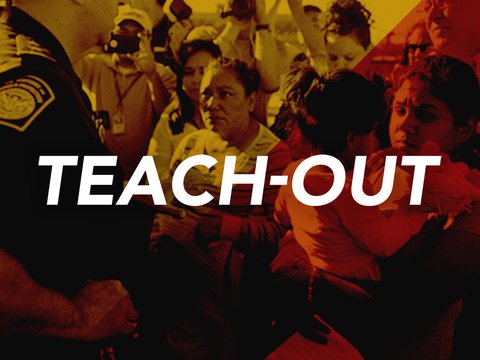
Crisis at the Border Teach-Out
American media have extensively covered controversy surrounding the Trump Administration’s implementation of a “zero tolerance” immigration policy detaining migrant families seeking asylum in the United States, and separating children from their families. The issue has triggered an intense torrent of media attention, social media activity, and heated conversations in both public and private spaces.
How do we make sense of this? The situation is rapidly evolving and raises larger questions around law, order, morality, and how these intersect with international crises in Latin America and around the world. How do we define our own internal debates and productively engage others to address the situation?
This Teach-Out will help you focus on key dimensions central to this issue, providing context on the policy, legal, and health implications of the family separation and detainment policies - and what the new Executive Order may mean for the future. It will also provide you with tools to have conversations around difficult, emotionally-charged topics like this, in order to help you productively engage with family and community members who may see this situation from a different perspective.
This Teach-Out will answer:
- What is the current state of U.S. immigration policy concerning family separation and detention, and how has it evolved?
- Why was the "zero tolerance" policy put into place, and how does it compare to previous immigration enforcement strategies?
- What are the immediate and potential long-term impacts on the mental and physical health of the immigrant families, particularly the children affected by these policies?
- How do we navigate the moral and ethical implications of detaining and separating families in the context of immigration control?
- What are the contents of the new Executive Order addressing this issue, and what does it mean for the future of immigration policy and family reunification?
- How can individuals engage in effective, empathetic dialogue about these polarizing issues to foster a more informed and collaborative approach to immigration?
By participating in this Teach-Out, you will be armed with a deeper understanding of the "zero tolerance" policy, its broader implications, and the role each of us can play in shaping the community's response to the challenges presented by immigration in the 21st century.

